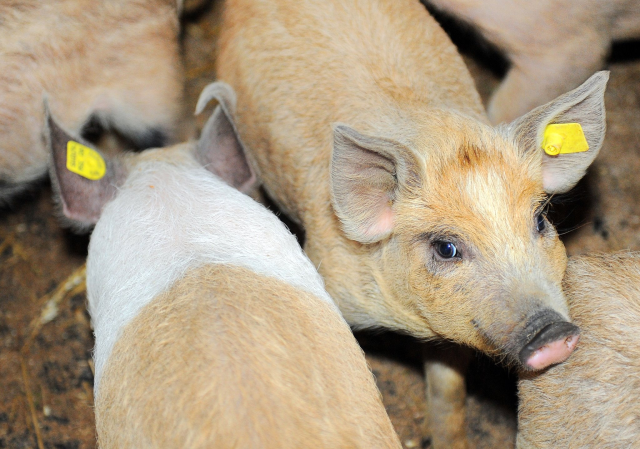The authorities will help those who suffered losses because of the
African swine fever to resume pig farming when the epidemic is gone. This was
the announcement made by agriculture minister Petre Daea, who also said the
measures, which will accompany financial compensations for the animals culled,
will be taken when the virus is eradicated:
I have already dispatched the director responsible for
animal husbandry in the agriculture ministry to the north-west. Based on the
programme, when the hotbed is neutralised, each family must conduct a number of
procedures and we will assess if things go back to normal and no further
contaminations occur, so that we can resume activity after 90 days.
Petre Daea has also said that he will travel to the European Commission on Thursday
to discuss the compensations to be awarded in the wake of the African swine
fever so that the money could make its way to the state budget. According to
the minister, compensations have already been disbursed for more than 4,000 of
the 6,000 cases approved, amounting to around 15 million Euros. The money now
comes from domestic sources, but will be covered by European funds as well,
said Daea. The African swine fever epidemic has so far affected a third of all
counties in Romania, with hundreds of hotbeds being reported, and over 300,000
pigs have been culled so far.
At the same time, authorities are trying to
implement measures to prevent the spread of the virus, the situation being
constantly monitored, the spokesman for National Sanitary Veterinary and Food
Safety Authority, Rares Habeanu, told Radio Romania:
Tests are being done, particularly to assess the animals’
health condition, and, in the areas close to the hotbeds or where the virus is
likely to spread according to our predictions, measures are being taken and strengthened
and analyses are being carried out more frequently, depending on the degree of
hazard we identify in certain parts of the country.
The measures aimed at preventing the spread of African swine fever
include shooting wild boars, which are considered responsible for the spread of
the virus. Also, some counties have banned all animal fairs, and vehicles
coming in and out of the county are being checked to make sure they are not
carrying live animals and meat products. Provenance documents, the goods and
the transport conditions are being checked.
(translated by Cristina Mateescu)
